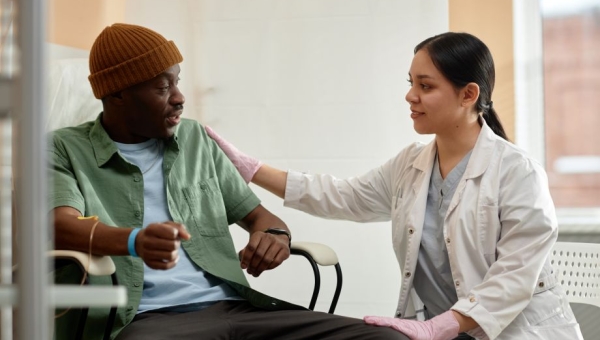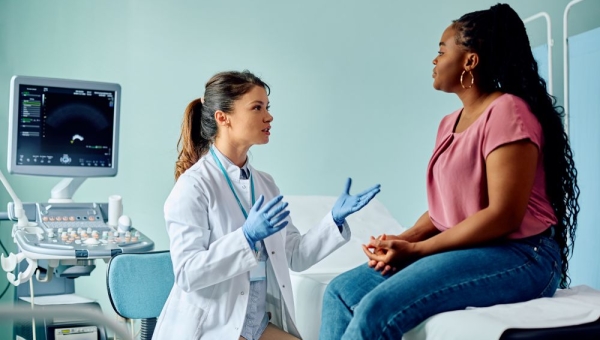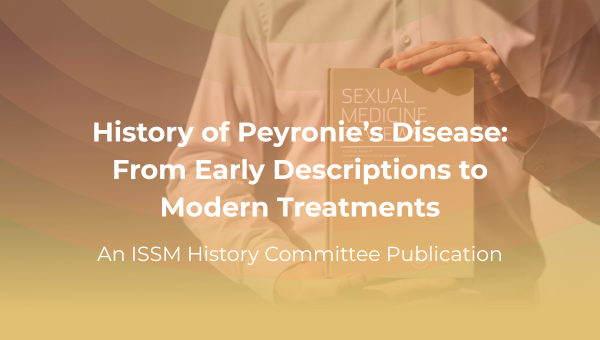
All News
Upcoming Events
 (1200 x 680 px) (1)_medium.png)
Our sincere thanks to everyone who joined us in Porto for the 27th World Meeting on Sexual Medicine, proudly organized in collaboration with ESSM. Your presence, expertise, and active engagement made this congress a remarkable success.
With participants representing countries across the globe and a rich scientific program covering the latest developments in sexual health, the meeting offered a valuable platform for exchange, learning, and meaningful discussion. The high level of interaction and collaboration truly reflected the strength of our international community.
We trust that the knowledge shared and the connections established during these days in Porto will continue to drive progress and innovation in the field. Thank you for contributing to the success of this meeting, and we look forward to welcoming you at future ISSM gatherings.
Check out some preliminary photos of the event here.
 (1200 x 680 px)_medium.png)
|
||
|
||
|

Background
Klinefelter syndrome (KF) is a genetic condition in which men have an extra X chromosome. Affecting between 1 in 500 and 1 in 1000 men, KF can cause differences in sex hormones that affect sexual function and fertility. In addition to these complications, KF may also cause metabolic syndrome, osteoporosis, hair and muscle mass loss, and breast enlargement.
In this ISSM Podcast episode, clinical psychologist and sexologist Marieke Dewitte explores the complex impact of sexual abuse on survivors’ bodies, relationships, and sexuality. She explains how trauma can alter stress responses, body image, trust, and sexual functioning, including patterns such as hyper- or hyposexuality, genital pain, dissociation, and sexual risk-taking. Dr. Dewitte details common triggers in daily life and during sexual activity, including sensory cues and threats to safety or control, and clarifies the misunderstood phenomenon of automatic genital arousal during abuse. She then outlines a stepwise, trauma-focused therapeutic approach that prioritizes bodily and emotional safety, trust, boundaries, and agency before directly addressing sexual difficulties. Emphasizing trauma-informed care, she highlights the importance of predictability, validation, collaboration, and building on resilience to help survivors gradually reconnect with their bodies, intimacy, and pleasure. Interview by Shelly Varod.
 (1)_medium.png)
Want to attend the next World Meeting on Sexual Medicine for free? Participate for a chance to win complimentary registration through the #WMSM26 Social Media Prize!
How to Participate
Throughout the meeting:
- Post high-quality social media content consistently during WMSM26
- Tag ISSM in your posts
- Use the official hashtag #WMSM26
Posts can include photos, videos, takeaways from sessions, networking moments, or creative highlights from the meeting.
Judging Criteria
All eligible posts will be reviewed by the ISSM Communications Committee and evaluated based on:
- Quality of content
- Consistency of posts
- Creativity and engagement

Background
Vulvodynia is a chronic vulvar pain disorder of unknown cause, and can be persistent or provoked (with penetration, tampons, pelvic exams, etc.), beginning at any age. Typically, vulvodynia is diagnosed when symptoms occur in the absence of known infections, dermatological conditions, and neurological disorders.

The ISSM History Committee has achieved an important milestone with the publication of its committee-initiated manuscript in Sexual Medicine Reviews, “History of Peyronie’s Disease: From Early Descriptions to Modern Treatments.” This article represents the fourth manuscript initiated by the committee ISSM History Committee, underscoring its ongoing contribution to the historical scholarship of sexual medicine.
Authored by ISSM History Committee member Wayne Hellstrom and colleagues Fuell, McKnight, Lewis, Trost, Machado, and Miranda, the paper traces the evolution of Peyronie’s disease management from early clinical descriptions to modern, evidence-based care. It highlights the increasing role of validated nonsurgical therapies, while reaffirming the importance of surgical intervention in complex cases. Readers are invited to consult the full article in Sexual Medicine Reviews for comprehensive insights and conclusions.
Read the article here.

“Plan B,” also known as the morning after pill, is a brand name for a type of emergency contraception that comes in the form of a pill. The World Health Organization (WHO) states that emergency contraception can be effective at preventing pregnancy up to 95% of the time when taken within five days following sexual activity.

Data from the past few years show a recent rise in interest for cosmetic surgeries. Specifically, there has been a rise in labiaplasties, which researchers believe shows there may be concern over genital appearance. In fact, previous studies to create measurement scales have revealed that up to 50% of women studied have expressed concern over the appearance for nonaesthetic reasons as well.




